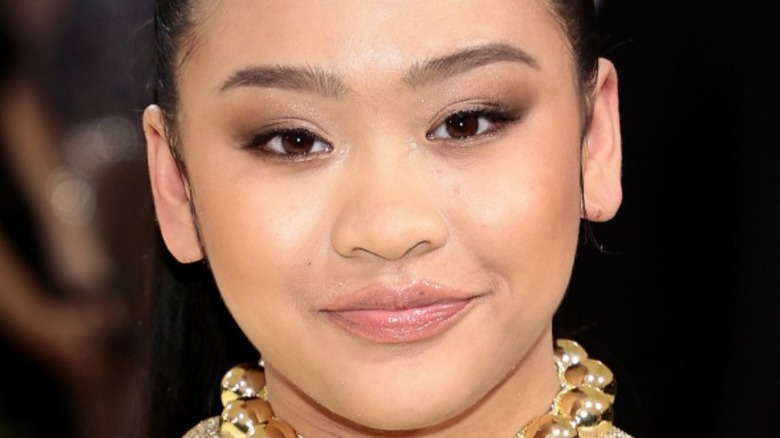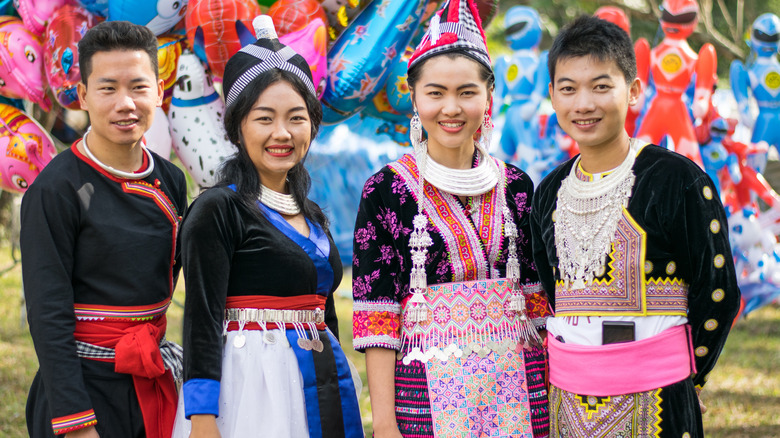How Suni Lee Hopes To Inspire The World To Learn More About The Hmong Community
When Sunisa "Suni" Lee won a gold medal in Tokyo last summer, she became, as NBC News reports, the first Asian-American to take the top prize in women's all-around gymnastics. Not only was this a huge source of pride for Asian-Americans at a difficult time, it was absolutely enormous for Lee's own community. She is perhaps the highest-profile Hmong celebrity, and the first Hmong to be named one of Time's most influential people.
If you know very little about the Hmong people, well, this is exactly the reason why Lee's win was so momentous. The Hmong immigrant story is a particularly tragic tale. According to the Hmong American Center , the Hmong had their roots in China, but left that land to spread out through southeast Asia in the 19th century due to conflict with the Chinese government at the time. Fast forward to the 1960s when that area was embroiled in the conflict known to us as the Vietnam War, although the fighting extended far beyond that country's borders. The Hmong in Laos were recruited by the CIA to fight in that organization's "secret war" against the communist Pathet Lao, and when the war ended (badly), the Hmong population was literally decimated. Survivors escaped to refugee camps in Thailand, where Hmong Story 40 reports that many spent upwards of 20 years. From there, they were eventually allowed to emigrate to the U.S., where Hmong communities developed in California, Wisconsin, and Minnesota, the latter being Lee's home state (via ABC News).
Lee is proud to be a spokesperson for the Hmong people
While 18-year-old Lee was born in the U.S., both of her parents are Laotian by birth. The Star Tribune says Lee's mother and father were children in the 1970s when the U.S. troops withdrew from Southeast Asia. They and their families had to make a dangerous crossing of the Mekong River into Thailand, and it was years before they were able to secure passage to the Twin Cities area. The Lee family, like so many in the Hmong community, never experienced the streets-paved-with-gold version of the American Dream. As the Pew Research Center reports, over 25% of the Hmong community were living in poverty as of 2015. Still, the whole community pulled together to help raise the funds needed to support Lee's Olympic dreams.
Now that Lee has come back home a heroine, she wants to return that support. As she told Today, the Hmong people in the Twin Cities "sacrificed a lot" in order to help her out, and she truly appreciates it. She wants to repay their generosity as best she can, saying, "I really want to be an inspiration to others and help others reach their dreams" (via NBC). Not only is Lee proving to be a role model for aspiring Hmong athletes (via WXOW), but the Hmong community throughout the U.S. has expressed the belief that her fame will lead people to find out more about the culture from which she comes (via Spectrum News 1).

